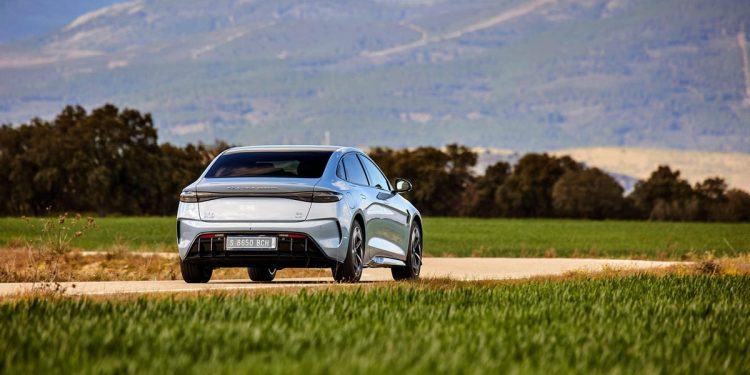American automakers have long-feared Chinese competitionI worry that cheaper cars built just as good would make the ground fall a profitable industry. Now regulators have found a way to protect American brands by outright banning Chinese cars — or automotive hardware or software — used for communications or autonomous driving.
The rules won’t come into full effect until 2029, although the software ban takes effect two years earlier. The bans affect Chinese and Russian cars, preventing manufacturers from those countries from selling overly high-tech products in the U.S. market. The excuse is one of national security, claiming that connected vehicles manufactured by “foreign adversaries” present an “unusual and extraordinary” threat to the country. From the new rule:
As discussed below, the PRC and Russia are able to leverage their domestic laws and regulatory regimes to compel businesses within their jurisdiction, including automobile manufacturers and their suppliers, to cooperate with enforcement agencies. security and intelligence. Such control over companies and their products and services means that their equipment is easily exploited by Chinese and Russian authorities. The privileged access that the PRC and Russia could obtain to connected vehicles via their components, including software and hardware, could allow these foreign adversaries (1) to exfiltrate sensitive data collected by connected vehicles and (2) to enable remote access and manipulation of connected vehicles. driven by American persons.
(…)
Laws enacted in recent years give the PRC government increased oversight and control over PRC-based companies and their foreign subsidiaries, providing leverage over company operations that further exacerbates the threat the PRC poses. for the national security of the United States. These laws require PRC-based companies, wherever located, to comply with certain requests for access and information upon request from the PRC and therefore could be used by the PRC to obtain commercial or other data from of PRC-based companies involved in the connected vehicle supply chain. .
Since the big scary threat here is functionally just a subpoena – a legal order to provide documents, information, or testimonywhich happens all the time here in the good old United States of America – it’s likely that protectionism is at least as much a driving force behind this law as any security fears. However, according to ReutersIndustry groups representing U.S. automakers have protested the rule in hopes of gaining more time to meet the requirements of the equipment ban. In our modern world of global supply chains, it is difficult to completely disengage from a high-producing country like China.
If automakers can do this, they will have a market all to themselves here in the United States. Without competition from China, they will never need to increase the quality or decrease the costs of their offerings compared to the current situation. Adam Smith, the father of modern capitalism, ridiculed anti-competitive government intervention like this:
All systems, whether of preference or of constraint, being thus completely abolished, the obvious and simple system of natural freedom establishes itself. Every man, so long as he does not violate the laws of justice, is perfectly free to pursue his own interest in his own way and to place his industry and capital in competition with those of any other man or order of men.
Have our modern capitalists failed to do their homework, or is a truly free and fair market not in their interest? Do they value personal profit over the quality of their products, their relationships with their customers, and the overall health of the economy? Is this a stupid question?


